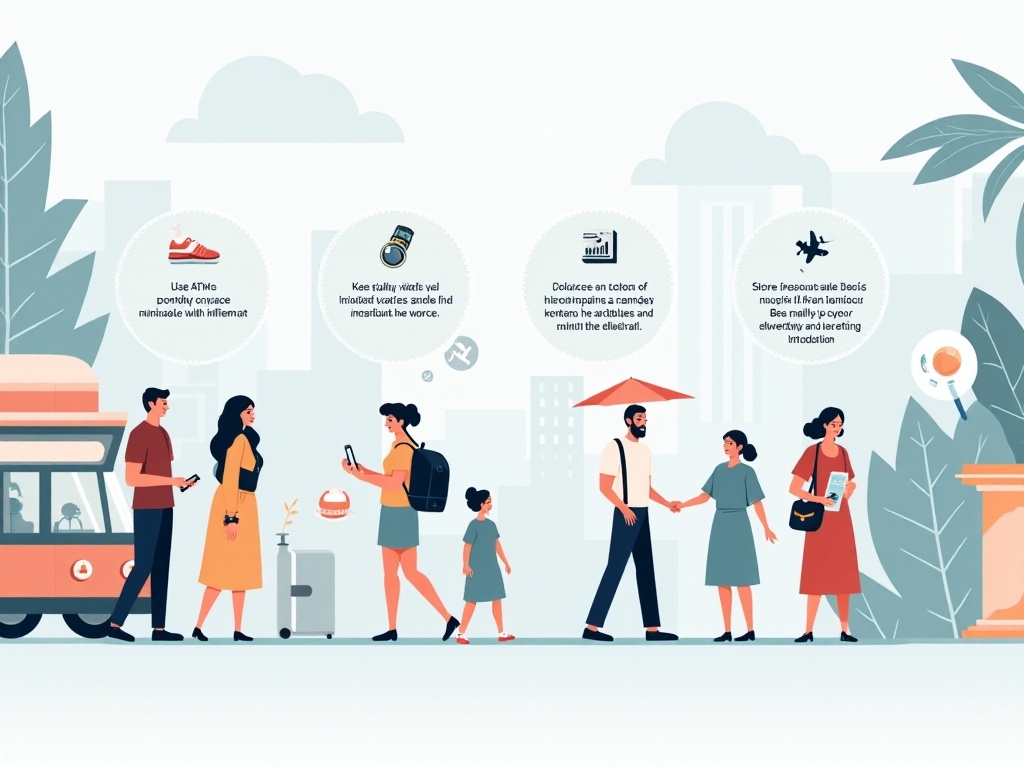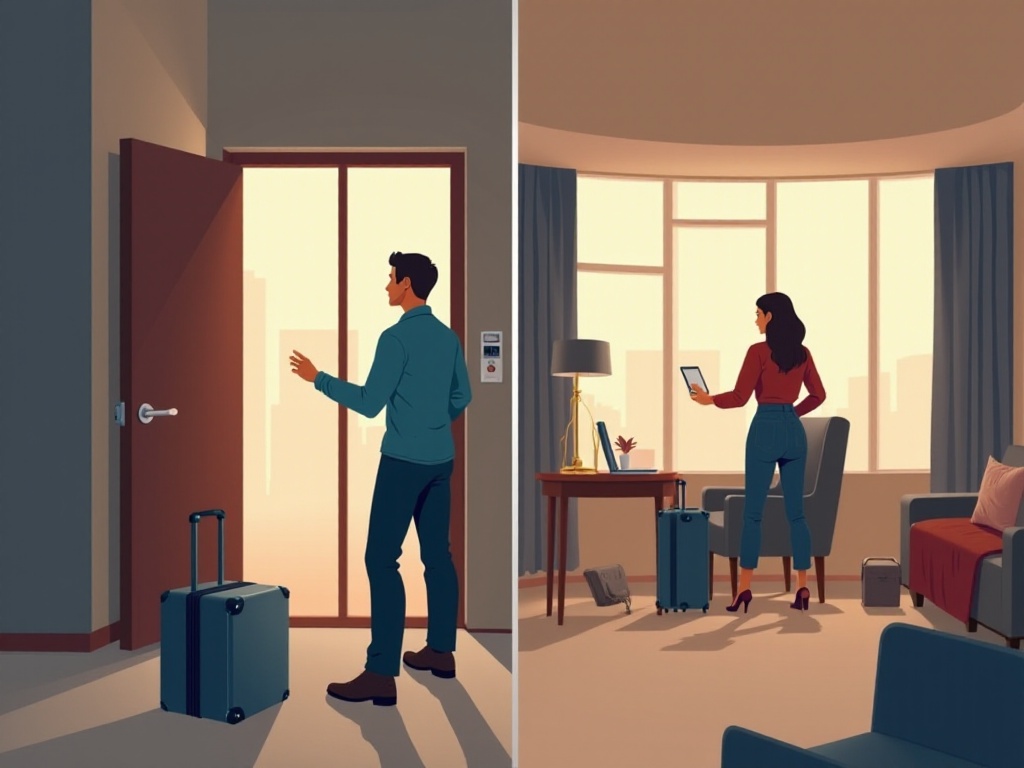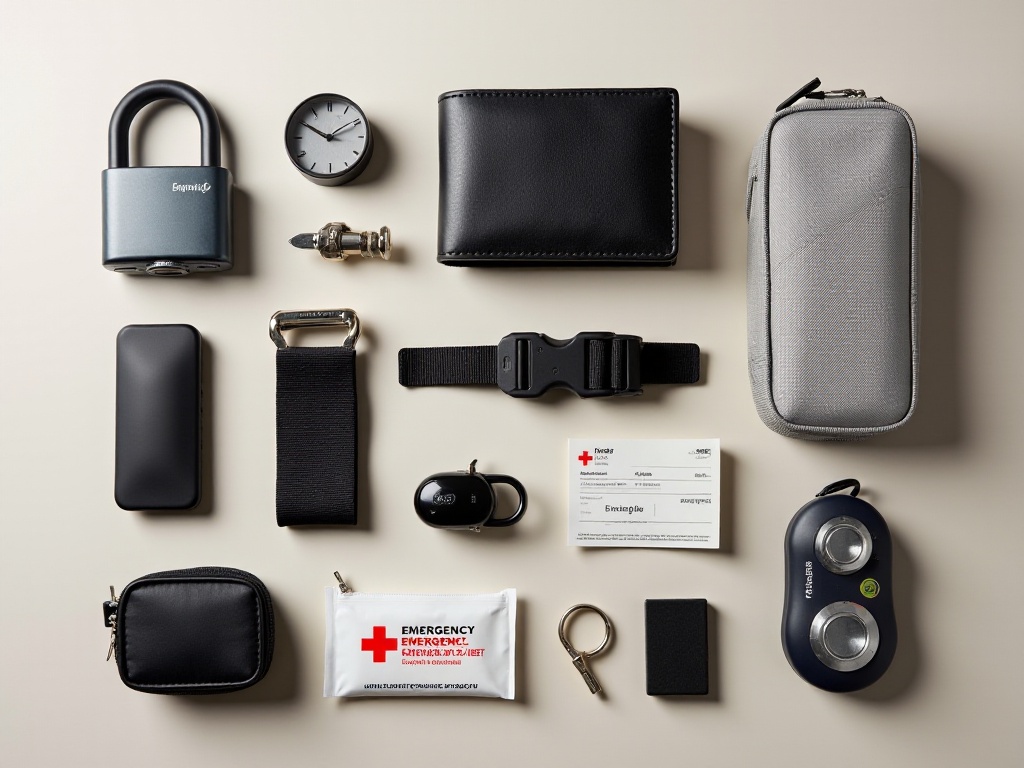
Opening Words
Hey dear readers. Today I want to discuss a crucial topic - travel safety. As a travel blogger who has visited over 30 countries, I deeply understand how important safety is for a perfect trip. After all, no one wants unexpected incidents to spoil their journey.
During my first solo international trip, I almost lost my passport in a hotel room in Tokyo because I was too excited and ignored safety details. After visiting Senso-ji Temple, I took a shower and lay in bed browsing my phone. The next morning I was heading to Mount Fuji but couldn't find my passport anywhere, which nearly gave me a panic attack. I finally found it in the bedside drawer - I had carelessly stuffed it there the night before because I was too tired. Since then, I started seriously studying and summarizing all aspects of travel safety. Today, let me share with you the experience I've accumulated over these years.
Accommodation Safety
When it comes to travel safety, accommodation is absolutely crucial. After all, we spend one-third of our time at our lodging while traveling. Whether it's a luxury hotel or youth hostel, safety comes first.
Pre-booking Research
Did you know? According to the 2023 Global Travel Safety Survey, over 65% of travel incidents are related to poor accommodation choices. This statistic really resonates with me because I've experienced similar situations.
Once in Rome, I randomly booked a cheap hotel online to save money. Upon arrival, I discovered it was in a very remote location without even a convenience store nearby, and the streets were pitch dark at night. Although nothing bad happened, that constant feeling of unease was really awful. So when booking accommodation, thorough preparation is essential.
First, carefully read accommodation reviews. I suggest not just looking at the overall rating, but paying special attention to safety-related comments. When booking a guesthouse in Chiang Mai, Thailand, I discovered through detailed review reading that previous guests had mentioned issues with loose door locks, which helped me avoid potential risks. Many booking websites now have detailed review categories - I recommend focusing on sections about safety facilities and surrounding environment.
I have a small tip: use Google Maps to check the surroundings of your accommodation. Look at both daytime and nighttime street views, especially the route from train stations or subway stations to your lodging. If you find many abandoned buildings or particularly dark alleys, be cautious.
Secondly, book accommodation in advance. Once in Venice during peak season, I had to look for last-minute lodging and could only find cheap hotels in remote areas, ultimately having to spend more to stay in a safe central location. So advance planning not only saves money but ensures safety. Generally, I start looking for accommodation at least two months ahead to have more options.
Besides location, the specific room position is also important. I usually request rooms not on the ground floor, as windows can be easily opened. I also try to avoid rooms in isolated corners or far from emergency exits. Once in Singapore, I specifically requested a high-floor room, and when there was a fire alarm (though it was a false alarm), I could quickly evacuate because I was close to the emergency stairs.
Check-in Precautions
Safety awareness after check-in is equally important. According to the International Tourism Association, over 40% of travel safety incidents occur at accommodations. This statistic might be surprising, but it makes sense since we often let our guard down at our lodging.
First, never disclose accommodation details to strangers. I've seen people share their hotel room numbers on social media in real-time, which is extremely dangerous. My advice is to wait until leaving that city before posting photos, and never reveal specific room numbers.
Once in a Madrid hotel elevator, a stranger asked which floor I was staying on, claiming he was looking for a friend. I said I forgot my room number and got off the elevator. Later when I checked with the front desk, there was no such "friend" staying there. In such situations, you must stay alert - better to seem unfriendly than take risks.
Secondly, ensure doors and windows are locked. Even during brief daytime outings, make it a habit to lock everything. I met a tourist in Barcelona who didn't lock their window thinking they'd quickly return from buying breakfast, only to find their room burglarized. Upon entering your room, immediately check all door and window locks to ensure they work properly. If you find any issues, request a room change immediately.
I now always carry a door stopper - one of those portable metal ones that wedge under the door. Placing it at night provides extra security even if someone has a spare key card. This small item costs just a few dollars but helps you sleep much more soundly.
Finally, properly secure personal belongings. Most hotels now provide safes - definitely use them. My advice: keep passports, spare bank cards, and large amounts of cash in the safe, carrying only what you need for the day. When using the safe, set complex passwords, avoiding easily guessable numbers like birthdates.
I keep a small night light by the bed, so I don't need to turn on the main lights when using the bathroom at night, avoiding disturbing roommates while preventing bumping into things in the dark. I also memorize the locations of fire extinguishers and emergency exits - though you may never need them, it's good to know where they are.
Environmental Safety
Regarding accommodation environment, many might think room safety is enough, but the surrounding environment is equally important. I have a habit of walking around new accommodations on the first day to familiarize myself with the surroundings. I particularly note where the nearest convenience stores and pharmacies are, so I know where to go if I need something at night or suddenly feel unwell.
When staying in Seoul, I deliberately visited the nearby police station to remember its exact location. This proved useful when I noticed suspicious people following me one night - I walked straight to the police station, and they immediately left.
Additionally, establishing basic friendly relations with the front desk is important. Chat with staff during check-in about basic hotel information like breakfast times and gym locations. This way, if you encounter any problems, they'll be more willing to help.
In Jeju Island, Korea, because I had a good chat with the front desk lady, she specifically warned me to be careful when returning after 11 PM from a certain direction because several street lights were broken. Such local advice is particularly useful - I wouldn't have known otherwise.
Property Safety
Personal Item Management
Speaking of personal items, you can't be careless. According to the 2023 Global Travel Safety Report, over 75% of travel property losses are related to poor personal item management. This statistic reminds me of some of my own lessons.
Once on the Paris metro, I wore a gold necklace (a gift from my grandmother), which attracted many stares, making me uncomfortable throughout the journey. Since then, I understood that avoiding wearing expensive jewelry is a basic principle. I specifically prepared some beautiful but inexpensive accessories for travel. Guess what? This not only ensures safety but also allows for lighter packing.
Backpack selection is also important. I now use an anti-theft backpack with zippers on the body-facing side and hidden compartments in the main section. Though more expensive, it's really effective. In Milan, a pickpocket tried to open my bag zipper but quickly gave up because they couldn't.
Choosing suitable luggage is important too. I recommend hard-shell cases with anti-theft locks, preferably in easily recognizable colors or patterns. My bright orange suitcase is particularly easy to spot on the baggage carousel. I've also put some special stickers on it, making it immediately distinguishable even if there are identical cases.
When managing personal items, I have a small habit of photographing all important items. Passport, tickets, credit cards, etc., are all photographed and stored on my phone, with backups in the cloud. This way, if things are lost, I can quickly provide information to police or embassies.
Another often overlooked detail is not hanging small items on the outside of backpacks. I've seen many people hang water bottles, hats, and such on their bags, making them easy targets for theft without notice.
Financial Security
Regarding financial security, this is absolutely crucial. Statistics show that global travel fraud cases increased by 35% in 2023, with a large portion related to payment security. Using cards abroad risks skimming, while carrying cash risks loss - it's indeed a headache.
My advice is: distribute cash in different places, don't keep all money in one wallet. Have some backup funds in your carry-on bag, suitcase, and other locations. I almost got pickpocketed in Rome, but fortunately, because my cash was distributed, the loss wasn't significant.
Regarding bank cards, I recommend having at least two credit cards from different banks. Sometimes one bank's card might be frozen for various reasons, having a backup prevents awkward situations. I experienced having my card frozen in the UK due to suspected unusual transactions, thankfully I had another card.
Be especially careful when using ATMs. I only withdraw money from ATMs inside bank branches, and carefully check machines for card skimmers before use. Once in Thailand, I found a suspicious ATM with a loose card slot and immediately switched to another machine.
Online payments also require attention to security. When using public WiFi abroad, better use a VPN. For online shopping or banking, ensure network security. I use mobile data, or if WiFi is necessary, I use my own portable WiFi.
Also, when using cards abroad, if the merchant offers to convert the charge to RMB, always decline. This so-called Dynamic Currency Conversion (DCC) usually has unfavorable rates. Let it charge in local currency - credit card company rates are better.
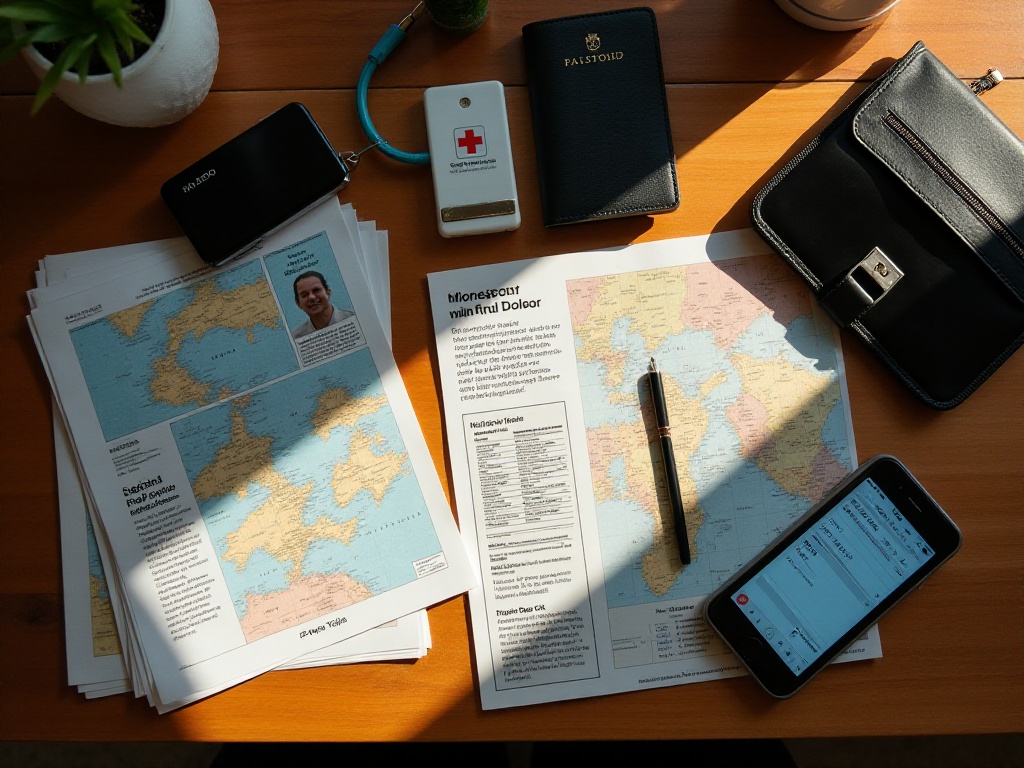
Shopping Safety
Speaking of finances, we must address shopping safety. Be especially careful of common traps when shopping abroad. For instance, many stores near tourist attractions inflate prices, sometimes two or three times the normal price.
My advice is to always compare prices at multiple stores, preferably shopping at malls or supermarkets frequented by locals. Shopping at Galeries Lafayette in Paris is much cheaper than boutiques on the Champs-Élysées.
Particularly worth noting is to be careful of street vendors in tourist cities. They might forcefully give you items, claiming they're "free," then demand payment once you're holding them. I've seen this at St. Mark's Square in Venice, where people give bracelets to tourists, claim they're gifts, then demand insufficient payment.
Remember to ask for receipts when shopping and check items on the spot. When buying bags in Milan, I always open and inspect them, confirming the leather quality and hardware are fine before paying. Some merchants might think you're being too particular, but these steps are necessary to avoid future troubles.
For valuable items, definitely get warranty cards or certificates from merchants. When buying a watch in Hong Kong, the merchant even recorded a video documenting the watch's movement number and condition, providing evidence for future warranty claims.
Document Safety
Document Management
Document management can be quite worrisome. According to consular protection statistics, nearly 20% of global consular assistance cases in 2023 involved lost documents. Losing a passport abroad is extremely troublesome, not only disrupting travel plans but also involving complicated replacement procedures.
My advice is: Always make document copies, and prepare multiple sets. Have copies of passport, ID card, and both sides of credit cards ready. I usually keep one electronic copy on my phone, one in my carry-on bag, and another in my main luggage, ensuring maximum security.
When handling check-ins or car rentals requiring documents, try to show copies rather than originals. If the other party insists on seeing originals, watch them during registration to ensure documents don't leave your sight.
Here's a small tip: write "COPY" on passport copies to prevent misuse. Also recommend photographing passport visa pages - if your passport is lost, these can help with replacement procedures.
Emergency Preparation
Emergency preparation is also important. I save local emergency numbers and embassy contacts in my phone and write them in a notebook I carry, in case my phone dies. Calling police immediately in emergencies abroad is really important.
Besides phone numbers, I also record nearby hospital addresses. Once in Tokyo, when a friend suddenly had severe stomach pain, we quickly found a 24-hour clinic because I had researched nearby hospitals in advance.
I recommend buying travel insurance before departure. Though you might never use it, it can be lifesaving when needed. A friend broke their leg skiing in the US - fortunately, they had insurance, otherwise the medical bills would have been devastating.
Electronic Device Safety
In this digital age, electronic device security is increasingly important. Phones, cameras, laptops are not only valuable, but losing their data can be troublesome.
My advice: Set password locks on all devices, and don't use simple passwords. Enable fingerprint or face recognition on phones, so others can't access information even if stolen.
Regularly backup camera photos, either to cloud storage or portable hard drives. After a full day of photography in Venice, I discovered my camera was lost that evening - thankfully I had backed up the photos, otherwise those beautiful scenes would only remain in memory.
Prepare multiple sets of chargers and data cables. I keep sets in both my carry-on and luggage, so there's backup if one set is lost. These items are often more expensive abroad and sometimes the right models aren't even available.
Transportation Safety
Public Transportation Safety
When taking buses or subways, pay special attention to bag placement. Better to wear bags in front rather than back. In crowded carriages, you can't see bags on your back, making them easy targets for thieves.
For long-distance trains or buses, better choose window seats. This way, you can place your bag on the window side, making it harder to steal. When taking trains in Europe, I often see people carelessly placing bags in the aisle - this is really dangerous.
Be careful while waiting for transport too. Train and subway stations are often crowded and chaotic - pickpockets' favorite places. I always find a spot against a wall to stand, providing back support and making it harder for thieves.
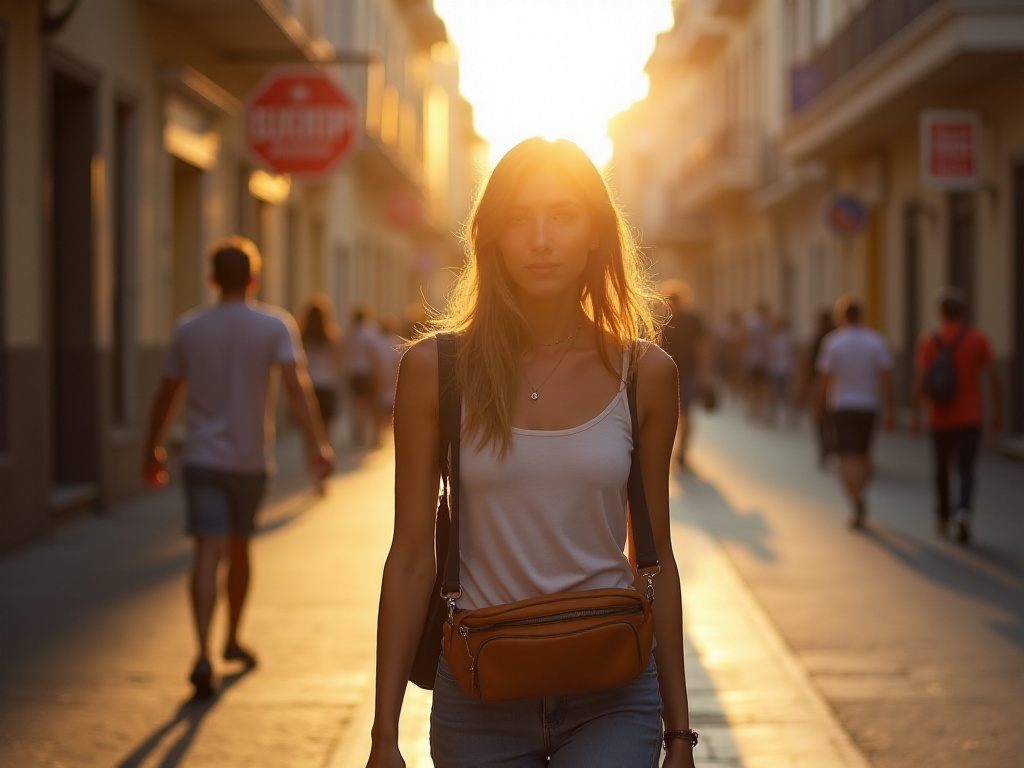
Taxi Safety
Abroad, always choose official taxis or reliable ride-hailing platforms. I download major local ride-hailing apps before traveling, avoiding getting ripped off by illegal taxis.
Check if the driver's ID matches what's shown in the app after getting in, and get out immediately if something seems wrong. Also recommend keeping navigation open to ensure the driver follows the optimal route.
Be especially careful when taking taxis alone at night. You can share real-time location with friends or pretend to be on the phone saying things like "I'll be there soon." This lets drivers know someone is monitoring your journey.
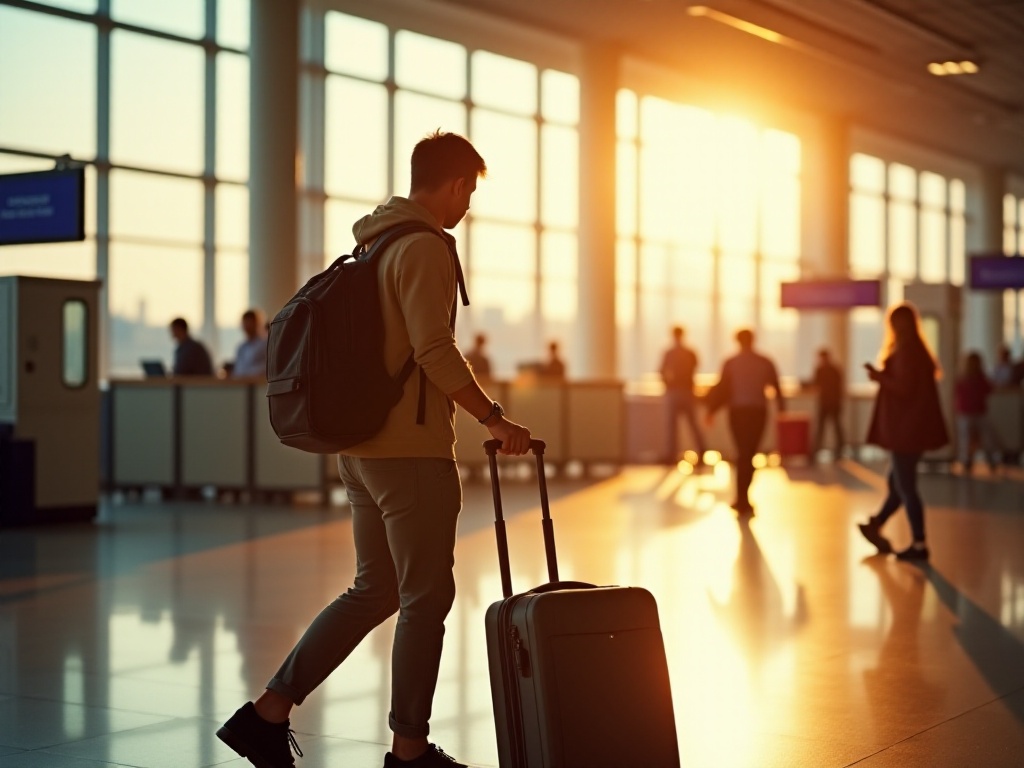
Driving Safety
For self-driving tours, safety requires even more attention. First ensure the rental company is reliable and vehicles are in good condition. I always photograph the entire car before taking it, recording all existing scratches to avoid unfair compensation claims when returning.
Familiarize yourself with local traffic rules before driving. For example, driving on the left in the UK requires special attention for those used to right-hand driving. During my first time driving in the UK, I kept instinctively veering right when turning - thankfully navigation reminded me.
Be careful with gas stations too. In some countries, remote stations might sell watered-down fuel. I always research locations of major brand stations online, preferring to drive extra kilometers for legitimate fuel.
Personal Safety
Dress Safety
Dress requirements can vary greatly between countries and regions. Some places are very conservative about clothing - wearing too revealing clothes might cause unnecessary trouble. When traveling to Middle Eastern countries, I always prepare long-sleeve shirts, long pants, and scarves, both respecting local culture and protecting myself.
Shoe choice is also important. Though high heels look nice, comfortable flat shoes are safer in unfamiliar places. I almost twisted my ankle on Rome's cobblestone streets - since then I never dare wear uncomfortable shoes while traveling.
Scam Prevention
You'll inevitably encounter various scams while traveling. Most common are street "free" items - like putting bracelets on you or giving roses, then demanding payment after you've accepted them. My principle is: don't accept anything from strangers or participate in any "free" activities.
Be especially careful of fake guides near attractions. They might claim to be official guides, charging high fees but providing poor quality tours. I always book official guide services online in advance - might be more expensive but at least it's guaranteed.
Also beware of fake police. In some tourist cities, people impersonate police to check passports or wallets. Real police rarely check passports randomly on streets - if encountered, you can request to handle it at the nearest police station.
Health Safety
Health is particularly important while traveling. I always carry a small medicine kit with cold medicine, digestive medicine, band-aids, and other common medications. Medical care abroad is expensive - better to handle minor issues yourself if possible.
Pay special attention to food safety. Don't eat at cheap street stalls or try food of unknown origin. I got diarrhea for several days after drinking roadside juice in Delhi, India, seriously affecting my itinerary.
Adjusting to different environments is a common problem for many travelers. Recommend drinking hot water locally, avoiding tap water or iced drinks. If you really want cold drinks, better choose sealed bottled beverages.
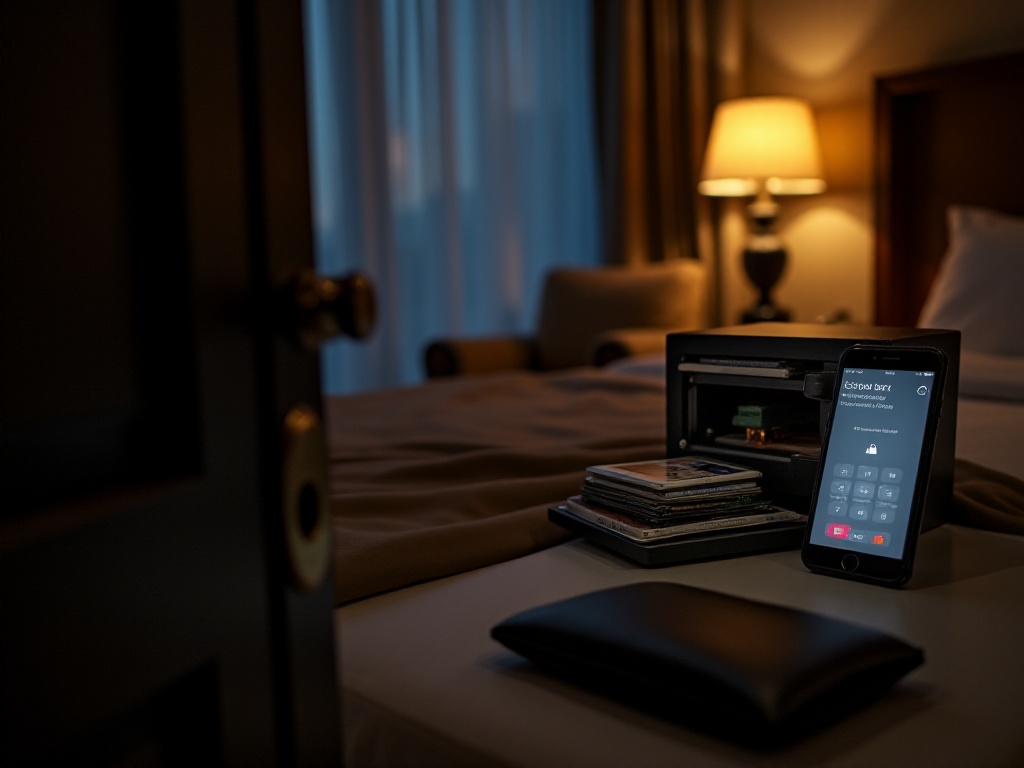
Social Safety
Friendship Safety
Making new friends while traveling is pleasant, but safety awareness is necessary. Don't easily trust strangers, especially those who actively approach you. In Paris, I met someone claiming to be a student who offered to take me to authentic French dining - fortunately I didn't go.
If planning activities with new friends, better stay in crowded public places. Don't easily go to their place or invite them to yours. Same applies to friends met in hostels - maintain vigilance even while living together.
Social Media Safety
Many people like sharing travel updates on social media in real-time, which is actually quite dangerous. Better post photos and thoughts after leaving a place - don't let others know your real-time location.
When posting photos, be careful not to reveal too much personal information. Things like hotel room numbers and ticket information should be masked. I've seen people post entire plane tickets online with order numbers clearly visible - this easily leads to information theft.
Emergency Handling
What to Do If Robbed
If unfortunately robbed, protecting life safety is most important. Money can be earned again, but personal safety comes first. Don't resist - give them what they want. A friend in South America was injured by criminals because they refused to hand over their phone.
After being robbed, immediately report to police and contact the embassy. If credit cards are stolen, immediately call banks to cancel them. Save these phone numbers in advance so you know what to do in critical moments.
What to Do If Documents Are Lost
If you lose your passport, first go to local police to file a report and get a police report. Then contact the Chinese embassy and follow their instructions for obtaining a travel document. This process might take several days, so adjust your itinerary in advance.
Accommodation might be problematic while replacing documents. Ask the embassy for certification - most hotels will be understanding with embassy documents. A friend who lost their passport in Australia even got help from embassy staff in contacting a Chinese family willing to host them.
What to Do If Sick or Injured
Getting sick abroad is really troublesome, so definitely buy good insurance. If feeling unwell, try consulting pharmacies first - many pharmacists are very professional and can give good advice.
If medical care is needed, better let the hotel help call ambulance or make doctor appointments. Finding hospitals yourself in unfamiliar places might waste time. Plus hotel staff usually know which hospitals are reliable and speak English.
Final Words
After reading all this, don't you think travel safety isn't as scary as imagined? With proper preparation and vigilance, you can totally enjoy a relaxed and pleasant journey.
Remember, safety doesn't restrict us from exploring the world, but helps us better enjoy travel's pleasures. What do you think? Welcome to share your travel safety tips in the comments.
Oh, if you want to learn more about travel safety, welcome to follow my blog where I'll continue sharing more practical travel experiences. Next time we'll discuss how to handle unexpected situations while traveling - remember to check it out.
Next
First Time Traveling to Japan Alone? Don't Miss These Essential Preparations! A Comprehensive Guide
A comprehensive guide covering essential travel safety preparations, including document management, luggage security, accommodation safety, and personal property protection, helping travelers minimize risks during their journey.
Essential Safety Guide for Solo Female Travelers in 2024: From Hotel Booking to Scam Prevention
A comprehensive guide covering travel safety aspects including accommodation security, personal belongings protection, and behavioral safety. Provides practical advice on lodging preparation, valuables management, document security, and scam prevention for travelers
What's It Like to Travel Alone to the Sahara Desert in Morocco? An Adventure from Ramadan to Desert Camping
A comprehensive guide covering essential travel safety aspects, including pre-trip preparation, document management, accommodation security, property protection, and emergency response protocols for a secure travel experience
Next
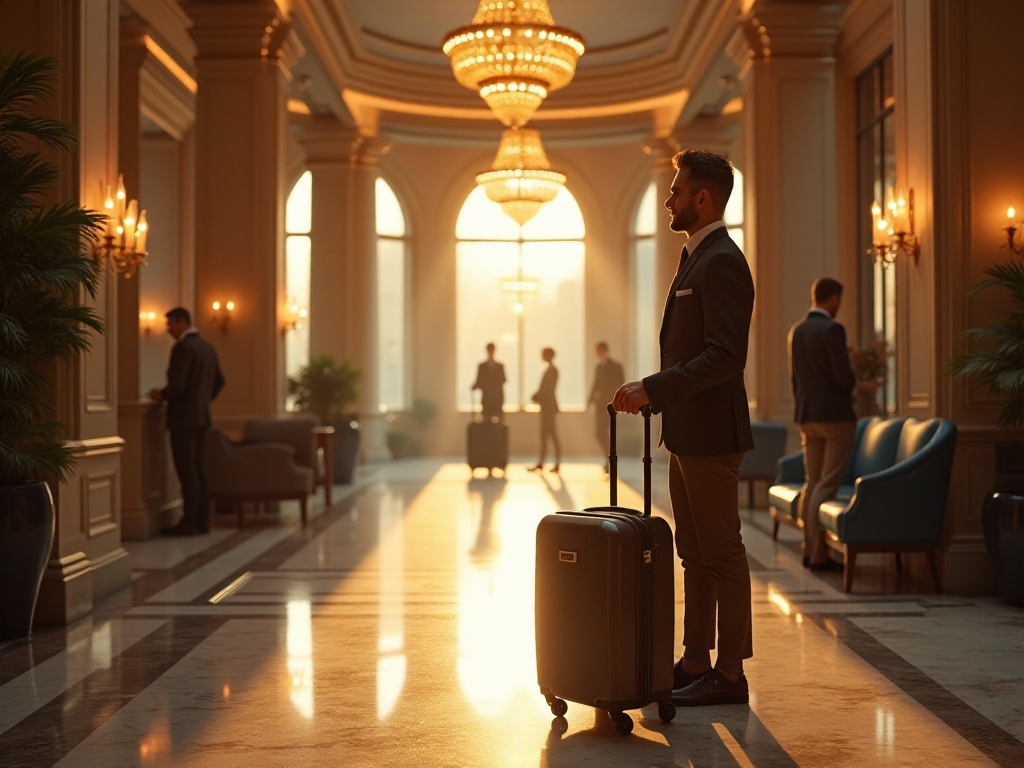
First Time Traveling to Japan Alone? Don't Miss These Essential Preparations! A Comprehensive Guide
A comprehensive guide covering essential travel safety preparations, including document management, luggage security, accommodation safety, and personal property protection, helping travelers minimize risks during their journey.
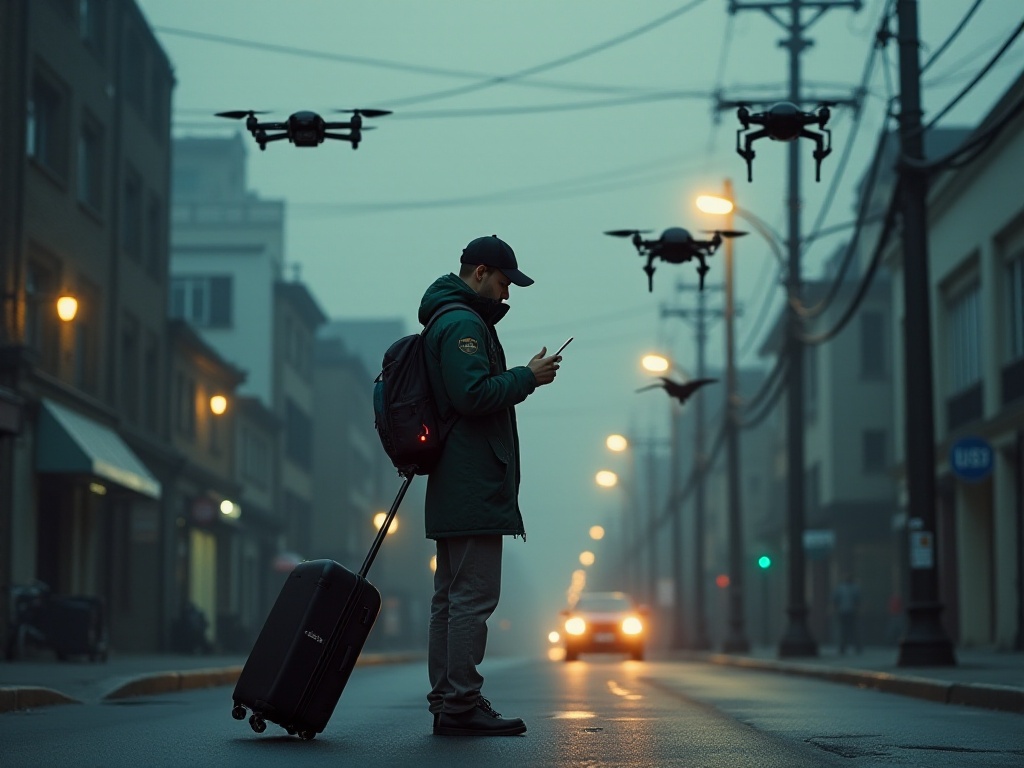
Essential Safety Guide for Solo Female Travelers in 2024: From Hotel Booking to Scam Prevention
A comprehensive guide covering travel safety aspects including accommodation security, personal belongings protection, and behavioral safety. Provides practical advice on lodging preparation, valuables management, document security, and scam prevention for travelers
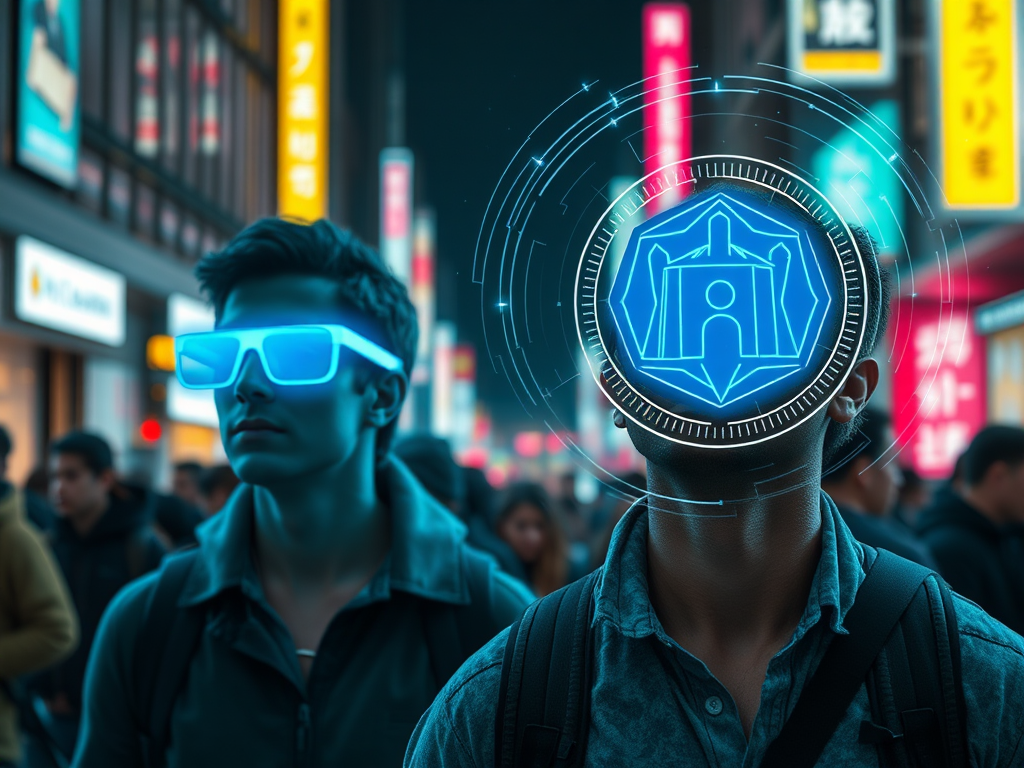
What's It Like to Travel Alone to the Sahara Desert in Morocco? An Adventure from Ramadan to Desert Camping
A comprehensive guide covering essential travel safety aspects, including pre-trip preparation, document management, accommodation security, property protection, and emergency response protocols for a secure travel experience

